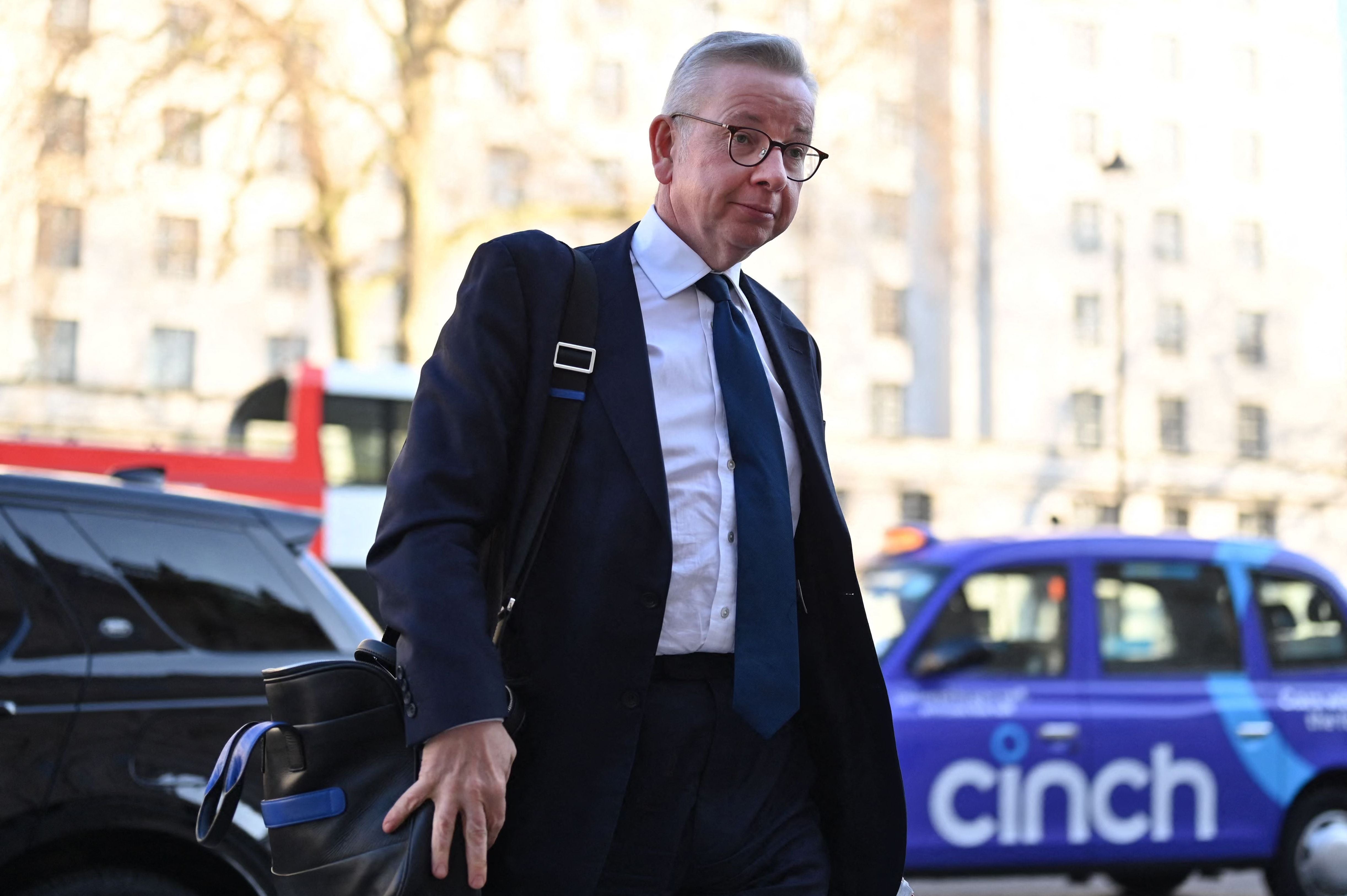The ‘secret Brexit summit’ shows the urgency of making the best of a bad job
Editorial: A series of relatively painless and voluntary concessions and operational arrangements would remove the most irritating of the problems

It is perhaps not an infallible guide, but the fact that the “secret summit” on Brexit has upset all the right people suggests that it was at least a good idea. It’s difficult to understand why a session involving politicians from all sides of the Brexit debate, plus experts and businesspeople, should have attracted such ire, but that has been the all-too-predictable outcome.
That the likes of David Lammy, Michael Gove, and the former Brexit negotiator Ollie Robbins should set past and present differences aside and hold constructive talks about such a crucial question, for the good of the British people, is surely only to be welcomed in this age of hyper-partisanship. The wounds from the referendum of 2016 have not yet healed – and it is time that they did.
Some, however, would rather they festered. It was particularly triggering for the populist-nationalist right to hear of the presence of Peter Mandelson as chair of the conference at Ditchley Park, asking the innocuous question: “How can we make Brexit work better with our neighbours in Europe?”
Mr Gove, who was one of the masterminds of the meeting, at least has the dignity to try to make it better. He may not have helped himself by omitting to tell the prime minister in advance that he was reaching across the political aisle, but he was hardly committing treason.
Given that so many of the problems facing the UK are intimately and inextricably linked to our fractured relationship with the EU – sluggish economic growth, the Channel refugee crisis, deadlock in Northern Ireland, the question of how to maintain collective security in the face of Russian aggression – it seems not just reasonable to talk about such matters, but urgently essential.
But the Euro-fantasists, the people in large part responsible for the present morass, spy only plots and conspiracies behind the damask curtains in the elegant rooms of Ditchley Park. Iain Duncan Smith, a man who could discredit almost any cause simply by association, decried it as “a classic Mandelsonian attempt to manipulate the process, which will come to nothing at the end of it all”. (In which case, one might ask, if it is all to come to nothing, why object?)
Nigel Farage, never knowingly understated, declared: “The full sell-out of Brexit is underway. This Tory party never believed in it.” That may be news to the likes of Mr Gove, Norman Lamont and Michael Howard, three of the more devout and long-standing Eurosceptics in attendance. David Frost, the man who actually negotiated the EU-UK trade and cooperation agreement (TCA) but has since denounced it, and who always calls for it to be renegotiated, added shamelessly: “Brexit doesn’t need ‘fixing’.”
The British people beg to differ. Three years on, there is little sign of the benefits that were supposed to flow from Brexit. Hence the public’s disenchantment – with the project, the mainstream party most closely associated with it, the Tories, and the man most identified with it, Boris Johnson.
On every test – business investment, trade, industrial costs, consumer choice, imported inflation, labour and skills shortages, peace in Ireland, university research funding, living standards, £350m a month for the NHS, European security, and more – Brexit has turned out to be a net negative. A flop.
That does not, yet, translate into an immediate desire to reverse it and rejoin the EU. Few wish to revisit the traumas of the last referendum. It does, though, mean that a party that engages with such a close and powerful neighbour as the EU will score a political advantage. If it ever was, Brexit is no longer a vote-winner, and it is now a matter of making the best of a bad job.
It would be interesting to see a transcript of the Ditchley discussions, or at least a briefing on the answers to the question posed. The answer given by most observers seems to be that the UK can make Brexit work better with our neighbours in Europe through a more polite and positive engagement with them; a desire to compromise for the greater good of a sustainable deal.
A series of relatively painless and voluntary concessions over operational arrangements would remove the most irritating of the problems. Some common rules on matters such as veterinary checks, free movement of musicians and artists, migrant processing, fishing quotas, and the role of the European Court could unlock much greater prizes for the UK, the EU, and particularly Northern Ireland.
That is not subservience to a superstate, but a voluntary pooling of sovereignties of the sort that is commonplace in international relations. It’s not revolutionary, but it is about the best that any British government can hope for in the short to medium term, whether led by Rishi Sunak or Sir Keir Starmer.
The work on repairing our relations with Europe has in fact already begun under Mr Sunak and Jeremy Hunt, neither of whom is as gratuitously insulting of European leaders (and especially the French) as were Mr Johnson and Liz Truss. Indeed, rumours of a positively Europhile approach sometimes emanate from government circles.
Things are thawing, a little. There’s plenty of chatter about the talks on the Northern Ireland protocol going well. We shall see. When the time comes to review the TCA more widely and formally in 2026, there will be much more work to be done – adding a security dimension, for example.
But the approach, then as now, should be less Brexit, not more.






Join our commenting forum
Join thought-provoking conversations, follow other Independent readers and see their replies
Comments